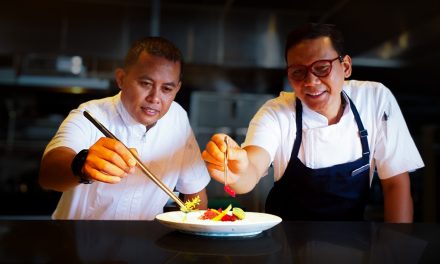Ah, Bali! The mere mention of it conjures images of stunning beaches, lush rice paddies, and vibrant culture. But for many of us, one of the most magical elements of this island paradise is its cuisine. Traditional Balinese food is a sensory delight, rich in flavors, colors, and stories. However, as globalization creeps in, preserving traditional Bali local cuisine has become more important than ever. Let me take you on a flavorful journey through this vibrant culinary heritage and share some personal anecdotes along the way.
The Heart of Balinese Cuisine
When I first arrived in Bali, I was welcomed by the intoxicating aromas wafting from local warungs (small eateries). The first meal I had was Nasi Campur, a fragrant rice dish topped with a variety of side dishes like spicy sambal, satay, and vegetables. I remember my first bite—the explosion of flavors made me feel as if the island itself had wrapped me in a warm embrace.
Balinese cuisine is characterized by a mix of ingredients and techniques, resulting in dishes that are both comforting and complex. The use of fresh herbs and spices like lemongrass, turmeric, and chili creates a unique flavor profile that’s deeply rooted in tradition. Yet, as I’ve come to know, this culinary art is at risk of fading away.
The Global Buzz: Is Bali Losing Its Culinary Identity?
Walking through the streets of Ubud or Seminyak, you might be greeted by numerous Western eateries, chic cafés, and fusion restaurants. While these places are enticing and showcase culinary innovation, they often overshadow Bali’s traditional foods. I remember sitting in a trendy café once, sipping on a latte, when I overheard a tourist asking, What’s that spicy dish with chicken and rice? The server replied, “Oh, that’s just our Balinese version of curry.” My heart sank. While I appreciated the fusion, it felt like a piece of Balinese culture was being watered down.
As the tourism industry thrives, there’s a real danger of forgetting the authentic tastes of Bali’s culinary roots. It’s like when a beloved family recipe gets altered for convenience sake, losing the very essence of what made it special.
How Can We Preserve Traditional Balinese Cuisine?
1. Support Local Warungs
A practical way to preserve the integrity of Balinese cuisine is to support local eateries. These small family-run establishments often serve dishes that have been passed down through generations. On one of my trips, I stumbled upon a tiny warung in a quiet alleyway in Nusa Dua, where an elderly woman made the most delectable Babi Guling (suckling pig). It felt special to sit there and watch her prepare the dish, infusing it with the kind of love only a grandmother could give. Not only did the meal nourish my body, but it also connected me to the history and cultural significance of the dish.
2. Learn to Cook Traditional Recipes
What better way to honor Balinese cuisine than learning to cook it yourself? Cooking classes are plentiful, and many are taught by locals who share their family recipes. I participated in a cooking class in a rural village, where the instructor insisted we gather ingredients directly from their garden. That experience taught me not only how to make authentic dishes like Sate Lilit (minced fish satay) but also deepened my appreciation for the local agriculture and sustainable practices that make these recipes possible.
3. Participate in Cultural Festivals
Bali is rich in culture and tradition, and food is a significant part of its festivals. During the Galungan festival, for example, families prepare elaborate feasts to honor their ancestors. I had the pleasure of joining a family during this time, and witnessing how they crafted offerings of Lawar (a traditional mixed meat salad) took me back to the roots of their culinary practices. Participating in these events allows you to witness the rituals tied to food, making every meal a celebration of tradition.
4. Write and Share Stories
Lastly, sharing your experiences can go a long way in preserving Balinese cuisine. Write about your culinary adventures, whether it’s through a blog, social media, or even a journal. When I returned home from Bali, I found myself overwhelmed with memories and flavors. I began documenting my experiences, and that not only kept the memories alive but also sparked conversations with others who have a love for authentic cuisine. You never know who might stumble upon your story and be inspired to explore traditional foods themselves.
Final Thoughts
Preserving traditional Bali local cuisine is not merely about keeping recipes alive; it’s about valuing the stories, history, and people behind every dish. As travelers, chefs, and food lovers, we have a responsibility to respect and honor this vibrant culinary heritage. Through supporting local warungs, cooking traditional dishes, participating in local festivals, and sharing our experiences, we can contribute to the preservation of Balinese cuisine for generations to come.So, the next time you find yourself in Bali, take a moment to dive deep into its culinary offerings. Trust me—the flavors you discover will stay with you long after your trip is over. Let’s work together to keep the heart of Bali beating strong through its food, one plate at a time.






